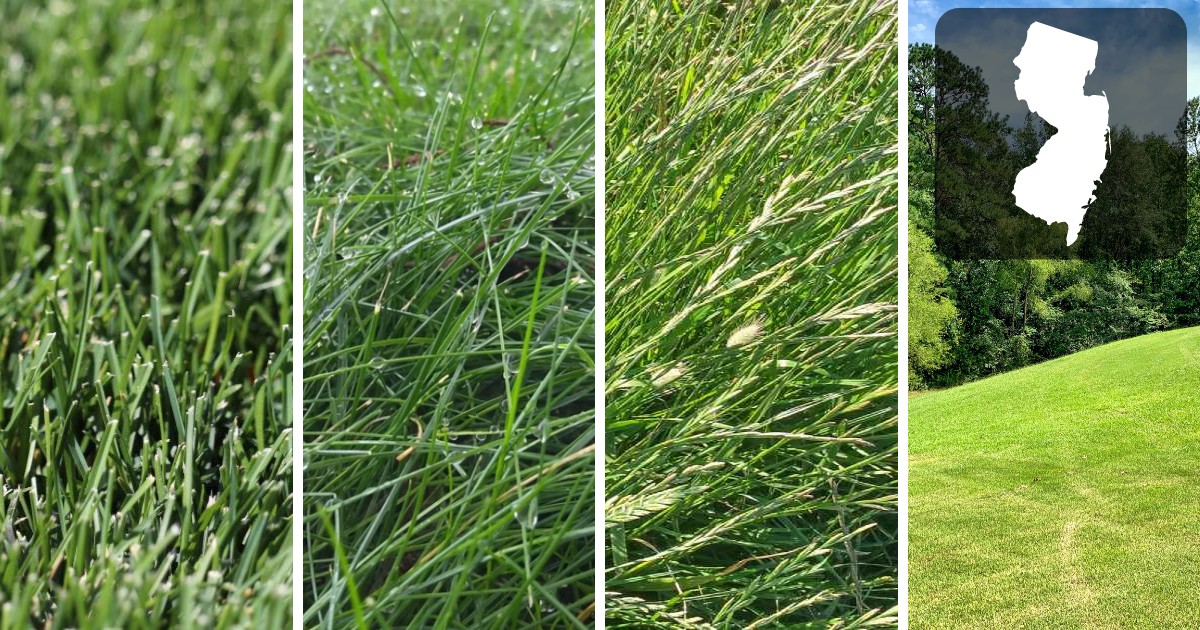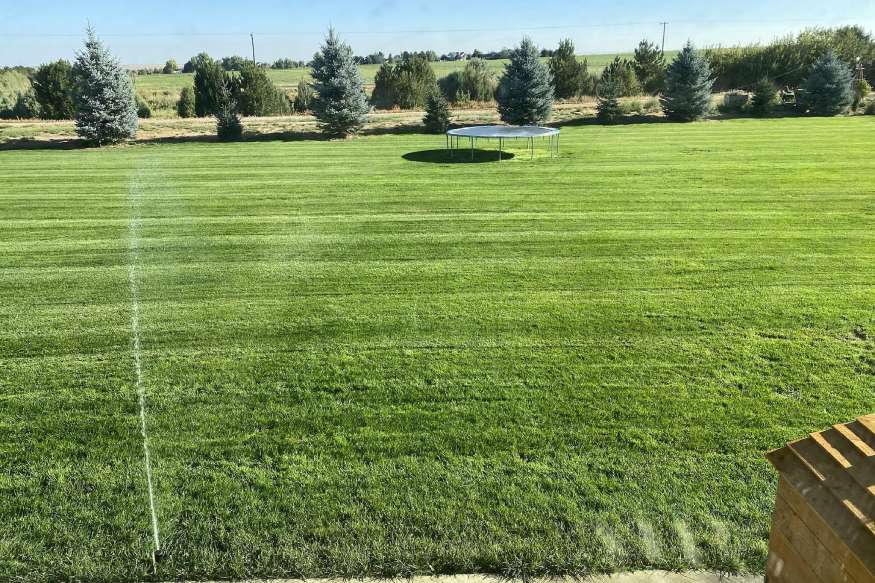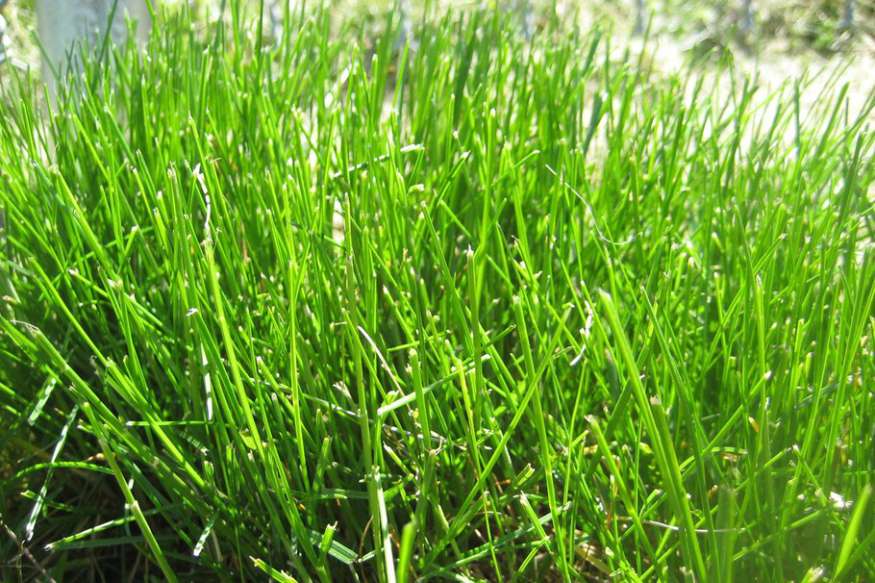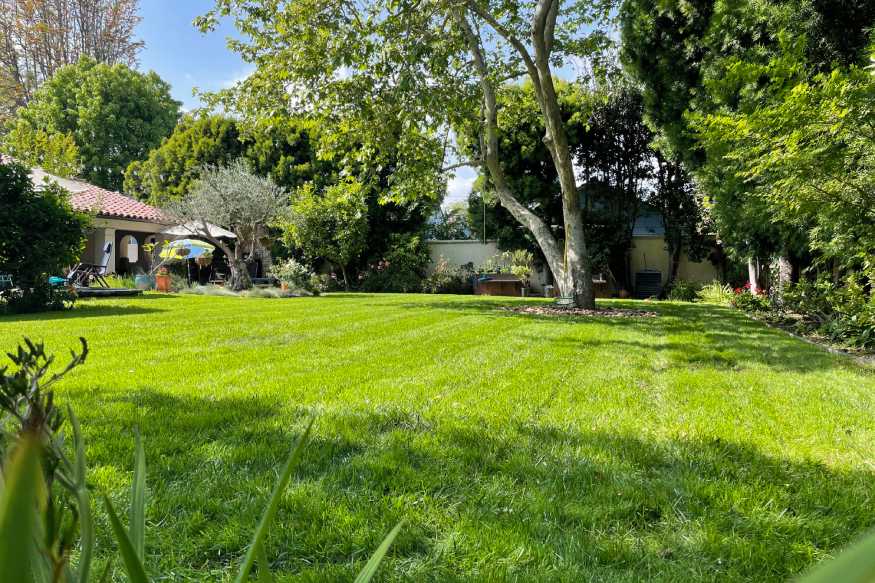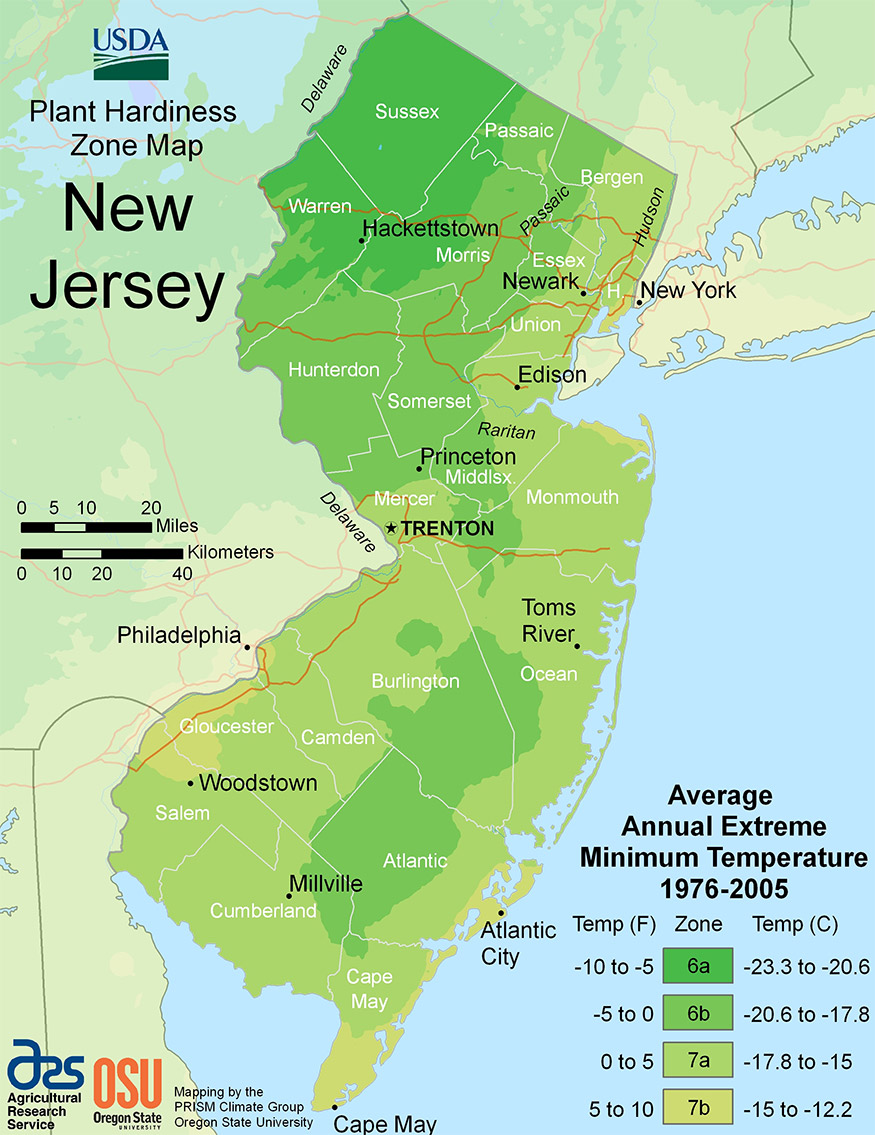New Jersey residents take great pride in their lawns, and for good reason. A lush, green yard is a symbol of the American dream, representing hard work, dedication, and attention to detail. But achieving that perfect lawn isn’t always easy.
The state’s unpredictable climate, soil quality, and pest problems can make growing grass a challenge. So, what is the best grass seed for New Jersey?
The quick answer is Kentucky Bluegrass. However, before you rush to buy it, let’s explore all the options available and understand why Kentucky Bluegrass is a great choice for the Garden State.
Whether you’re a seasoned gardener or a first-time homeowner, this article will help you choose the right seed for your lawn and turn your dream into a reality.
Kentucky Bluegrass
| Also Known As | Poa pratensis L. |
| Type of Grass | Cool season perennial |
| Optimal Zones | Northern cool season zone, transition zones |
| Root Structure | Shallow |
| Winter hardiness | Excellent |
| Shade tolerance | Poor to Good |
| Water Requirements | High |
| Drought Tolerance | Poor |
| Self Repair Capacity | Excellent |
| Overall Maintenance Requirements | High |
Why Kentucky Bluegrass is a Good Choice For NJ Lawns
Kentucky Bluegrass is the most popular grass seed in the United States, and for good reason. While it originated in Europe, it has found a happy home in New Jersey, where its dark green color and durability make it a top choice for homeowners. With good recuperative ability and a lush appearance, it can withstand heavy foot traffic and cold northern winters.
However, it does have its downsides. This grass is prone to thatching, susceptible to disease, and intolerant of salt and shade. It also requires moderate maintenance, and is easily damaged by heat and drought.
When seeding with Kentucky Bluegrass, it’s important to choose the right time of year. Early spring or early to mid-fall is ideal for successful planting. Homeowners should aim to plant around three pounds of seed per 1,000 sq ft of lawn. This versatile grass can handle hot summers, but it’s not recommended for coastal areas, and will require more frequent mowing.
Despite its challenges, Kentucky Bluegrass remains a top choice for New Jersey lawns. Its beauty and durability make it a reliable choice for homeowners looking to achieve a lush, green lawn. But, as with any grass seed, it’s important to consider your specific needs before making a decision. So, if you’re looking for a grass seed that can withstand heavy foot traffic and northern winters, Kentucky Bluegrass is an excellent option to consider.
Fine Fescue
| Also Known As | Hard fescue, strong creeping red fescue, slender creeping red fescue, sheep fescue, chewings fescue; Festuca L. |
| Type of Grass | Cool season perennial |
| Optimal Zones | Northern zones |
| Root Structure | Medium |
| Winter hardiness | Excellent |
| Shade tolerance | Excellent |
| Water Requirements | Medium to High |
| Drought Tolerance | Excellent |
| Self Repair Capacity | Limited |
| Overall Maintenance Requirements | Low |
Why Fine Fescue is a good choice for your New Jersey Yard
In southern New Jersey, the soil conditions are vastly different from the north, and homeowners need to carefully consider the grass seed they choose. Fine fescues, with their narrow needle-like leaf blades, are an excellent option due to their superior shade tolerance and ability to thrive in high pH environments. However, their fine texture can make them difficult to mow.
Different types of fescues, such as hard fescue, creeping fescue, and chewing fescue, can be mixed to create the ideal blend for your lawn. Fine fescues require little maintenance and are known for their tolerance of drought, salt, and cold. They can also adapt to infertile and acidic soils. However, they have some limitations, including susceptibility to certain diseases and poor traffic tolerance.
Despite these limitations, fine fescues remain a versatile option for homeowners seeking a low-maintenance, natural-looking lawn that can handle shade and low-input conditions. Their ability to tolerate a wide range of mowing heights and low water-use rates make them an excellent choice for environmentally conscious homeowners. However, they may not be the best choice for areas with severe heat stress or heavy traffic.
Overall, homeowners in southern New Jersey looking for a grass seed that can handle shade and low-input conditions should consider fine fescues. By mixing different types, homeowners can create the ideal blend for their lawn. While they do have some limitations, their low-maintenance characteristics make them an attractive option for those seeking a natural-looking lawn that requires little upkeep.
Perennial Ryegrass
| Also Known As | Lolium perenne L. |
| Type of Grass | Cool season perennial |
| Optimal Zones | Mild northern zones |
| Root Structure | Deep |
| Winter hardiness | Good to excellent |
| Shade tolerance | Moderate |
| Water Requirements | High |
| Drought Tolerance | Good |
| Self Repair Capacity | Excellent wear tolerance |
| Overall Maintenance Requirements | Moderate to high |
Why Perennial Ryegrass is a Good Choice for NJ Lawns
If you’re looking for a grass seed that can handle heavy traffic, perennial ryegrass might be the perfect choice for your lawn. This fast-germinating cool-season grass can sprout in just two weeks, and its blades form a lush carpet that maintains its color throughout the winter. It can also withstand cold temperatures and is a great option for homeowners who want a permanent lawn.
Perennial ryegrass is commonly used as a turf grass and high-quality pasture grass for livestock throughout the United States. It’s not related to the rye plant that produces cereal grain, but is instead related to the turf grass known as annual ryegrass. While annual ryegrass is short-lived and used for temporary stability, perennial ryegrass can establish a permanent lawn in northern climates.
In New Jersey, perennial ryegrass is a popular choice for homeowners seeking a fast-germinating grass that can handle heavy foot traffic. However, it does require plenty of water and may not be suitable for those living in dry areas. It is also best planted in the spring or early fall, and does well in full sun with little shade.
Overall, perennial ryegrass is an excellent choice for homeowners seeking a permanent, durable lawn that can handle heavy traffic. Its ability to withstand cold temperatures and fast germination make it an attractive option, although its susceptibility to diseases and poor freezing tolerance when exposed to wind may be a consideration for some.
New Jersey’s Climate And Growing Challenges For Lawns
New Jersey has a humid subtropical climate, which means that it experiences hot summers and cold winters. The state is also prone to a variety of weather conditions, including thunderstorms, hurricanes, and blizzards, which can pose challenges for maintaining a lawn.
Soil Conditions
The soil in New Jersey varies depending on the region. In the north, the soil is often rocky and acidic, while the soil in the south is sandy and alkaline. This can make it difficult to grow certain types of grass, as they may not thrive in the soil conditions.
Weather
One of the biggest challenges for growing a lawn in New Jersey is the state’s unpredictable weather. Heavy rainfall, droughts, and extreme temperatures can all take a toll on the grass. Additionally, the state’s high humidity levels can lead to fungal diseases, which can damage the lawn.
